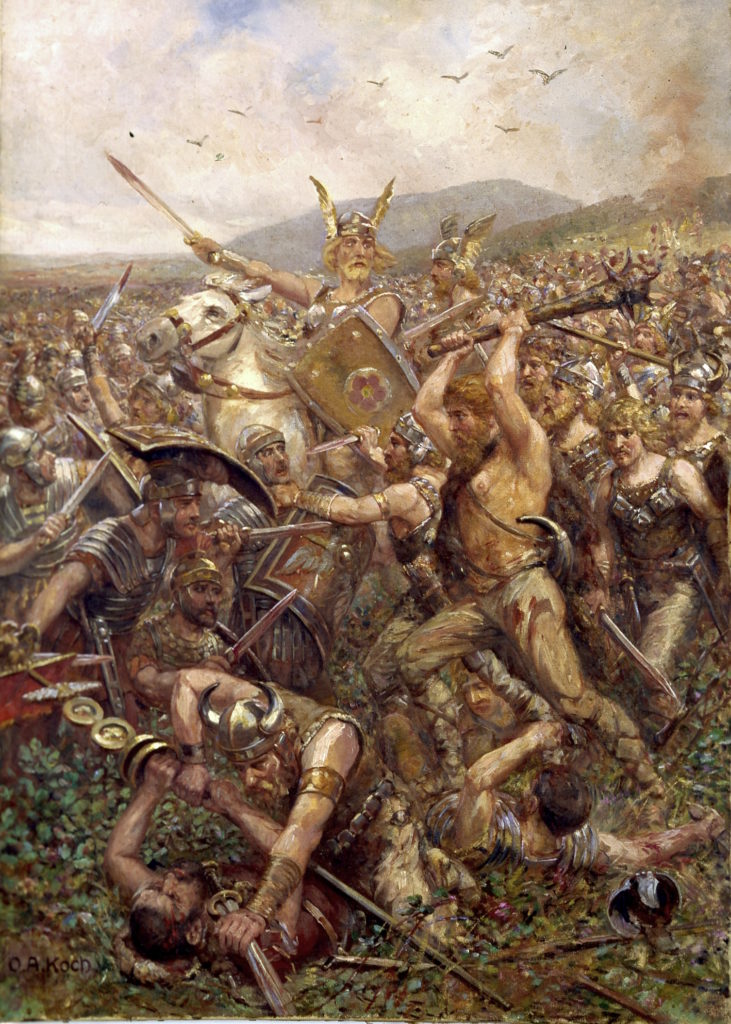If you go into the woods today, you’re in for a big surprise. So says the children’s song, “The Teddy Bear’s Picnic”. So said German chieftain Arminius to the Roman legions of General Varus in the Teutoburg Forest in 9 AD.
Arminius, or Hermann to the folks back home, was a young chief of the Cherusci tribe who spent his youth in Rome as a hostage and later as a soldier, being granted Roman citizenship and command of military units.
In 7 AD he returned to Germania where the Romans had penetrated beyond the Rhine, occupying large tracts of territory and reducing tribes to a tributary status. Arminius began to conspire with other chieftains to form a pan-tribal alliance and drive the Germans out. In the early autumn of 9 AD he convinced Varus, the governor of Germania, that a distant Roman garrison was endangered and that he should send troops to rescue them. Varus promptly marched three legions, the Seventeenth, the Eighteenth, and the Twentieth, out of his safe fortifications into an ambush in which the Roman army was hacked to bits and massacred.

Augustus Caesar was distraught, said to cry out for months afterward, “Quintilius Varus, give me back my legions!”He sent retaliatory raids back across the Rhine which laid waste to German villages and recovered two of the three lost legionary eagles. Roman troops happened upon the site of Arminius’ victory and according to the historian Tacitus this is what they saw:
In the center of the field were the whitening bones of men, as they had fled, or stood their ground, strewn everywhere or piled in heaps. Near lay fragments of weapons and limbs of horses, and also human heads, prominently nailed to trunks of trees. In the adjacent groves were the barbarous altars, on which they had immolated tribunes and first-rank centurions.
Some survivors of the disaster who had escaped from the battle or from captivity, described how this was the spot where the officers fell, how yonder the eagles were captured, where Varus was pierced by his first wound, where too by the stroke of his own ill-starred hand he found for himself death. They pointed out too the raised ground from which Arminius had harangued his army, the number of gibbets for the captives, the pits for the living, and how in his exultation he insulted the standards and eagles.
This was a decisive victory for the tribes because it convinced the Romans that there was little to be gained in renewing their conquest; henceforth they built their border defences along the Rhine.
The alliance that Arminius had put together soon collapsed and he was murdered in 21 AD by his own tribesmen who feared he was growing too powerful.